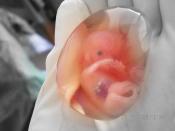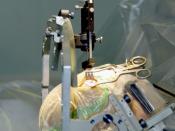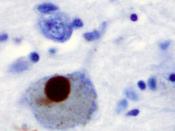Fetal tissue research is most controversy issue in the ethical world today. Medical researchers had shown that fetal tissue could help to cure many patients that have Parkinson disease and many other diseases as well. The approach of this medical research has raised many ethical questions that are concerning about the life of the innocent unborn children.
There are many potential uses for fetal tissue transplants, but the focus to date has been on the treatment of Parkinson's disease. Parkinson's disease affects the part of the brain known as the substantial nigral. This disease occurs when the brain cells deep inside the brain is death. The patients who got this disease are very noticeable; for examples, the patients have inability to move, tremor, weakness, poor balance, loss of dexterity, reduced sense of smell, depression, speechless, and double vision. The majority patients will not live long after they got the Parkinson's disease.
They will eventually die of complications. The current treatment is using drug to keep the patients live within a short period of time, but it won't help to cure Parkinson's disease. This disease is one of the most severe diseases; recently medical research had discovered that fetal tissue could be used to cure the patients who have the Parkinson's disease. The research shows that fetal tissue can be used to transplant into the damage area of the brain and help that area to restore the normal function. To treat the Parkinson's disease, scientist take the brain tissue from a human fetus is transplanted into the brain of the patient and within weeks the tissue begins to secrete dopamine. This represents an alternative to the customary drug therapy that contains dopamine or stimulates greater dopamine release from the existing healthy tissue in the brain.
Fetal cells provide special advantages...


